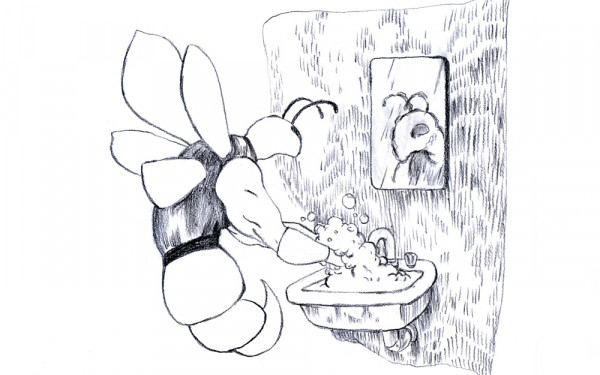Justice for Alice Paquet, and for All Survivors
Re-Thinking Procedure in Sexual Assault Cases
“We believe you,” read stickers pasted on former Liberal MNA Gerry Sklavounos’ Montreal office on Feb. 10, but the message was not meant for him.
The stickers were put up after his first public appearance when it was announced that sexual assault charges would not be filed against him. The message was for Alice Paquet, the woman who accused him of assaulting her, twice, back in 2014.
A week before the stickers were put up, a Quebec Crown representative said that based on the investigation conducted by Quebec City police, prosecutors had determined that no criminal act had been committed. Paquet’s story is one that, as we’ve seen many times with past cases, prosecutors are often extremely reluctant to take on—she says she went into his hotel room willingly and did consent to a kiss, and she admitted to returning to see him again after, which she says led to the second assault.
“I was really confused,” she wrote in a statement on her Facebook. “I went back, I’m not sure what I was expecting.”
It is reminiscent of the John Abbott student whose case was dropped by investigators in the summer of 2016 because police had found surveillance videos they said contradicted her statement. The videos in question showed her walking into the school at the beginning of the day with the student she accused and, later on, her apparently smiling when he first kissed her. There was no video available of any other contact between the two, and when the woman reported she was told it was unnecessary to get a rape kit.
In both situations, the accusers were friendly with their alleged assaulters. One had admitted to consensual contact, and the other appeared to in a surveillance video. And both resulted in law enforcement deciding to drop the case.
Another case just as recent and close to home is that of the 31 Val d’Or women who accused six provincial police officers of sexual assault. Out of 37 complaints, not a single one led to charges.
Studies of false-rape accusations in recent years have almost all yielded similar results, despite differing methods of calculation. They say that between two and eight per cent of rape accusations are false. The director of research at End Violence Against Women International, Doctor Kimberley A. Lonsway, says this pattern of similar findings throughout several studies all conducted differently is encouraging: “the diversity of methods means that the convergence of findings is especially noteworthy.”
If between two and eight per cent of rape accusations are false, it is very difficult to accept that none of the 40 individual allegations of sexual assault—from these three high-profile cases in Quebec since 2015—even led to any charges. The likelihood that every single one of them is false is just too low to simply dismiss all these allegations.
This seems to show a problem with how sexual assault cases are handled, if the rate of those accused not being charged does not match the number of false rape accusations. Guilty people are slipping through the cracks somewhere—something anti-rape advocates have been saying for a while. So how can our justice system do better?
For starters, investigators and prosecutors need to take on cases that are more representative of the standard narrative of sexual assault. More than 60% of victims know their perpetrator, and many have been romantically or sexually involved with them prior to being sexually assaulted by them.
The fact is that a person is more likely to be assaulted by friends, coworkers, classmates or partners than strangers. If police feel that they can dismiss an allegation because the alleged victim was friendly with the person they accuse—or because they agreed to be alone with them or even engage in some form of physical contact with them—then we must assume that their view of what constitutes sexual assault differs from the reality.
The Sklavounos case may have been a tough one, but Paquet’s description of what happened—agreeing to have a drink with him and to be alone with him—matches that of countless other victims. The fact Paquet’s testimony was deemed false by a Crown representative indicates that prosecutors have an unreasonable standard for what cases they feel they can pursue. And the Crown’s unreasonable standards point out that the law often makes prosecution of sexual assault cases too difficult.
It is also apparent, judging by the response of one of the officers in the John Abbott case, that police may not be properly trained on how to handle these types of cases. A rape kit is a standard procedure when a sexual assault is reported within three days after the alleged time of the attack, so the fact that the survivor was told it was not necessary is worrisome. The evidence collected could potentially have made all the difference in the outcome of the case. The case should be a reminder that we should not assume that police are always handling situations appropriately.
These cases indicate that members of law enforcement and perhaps even prosecutors may need more rigorous training in the realities of sexual assault and how such cases should be handled. It should be unacceptable that so many allegations do not even lead to charges—despite the unlikelihood that they are all false. It should be unacceptable that officials demonstrate a lack of understanding of these cases and the appropriate course of action when investigating them.
The sad reality is we frequently see victims discredited, and perpetrators protected, in the way sexual assault cases are treated on school campuses, in sports, in Hollywood, and the media. We should expect better—we should demand better. Treating these cases with the seriousness they deserve is a good start.




.WEB_600_375_90_s_c1.jpg)
_600_375_90_s_c1.jpg)
